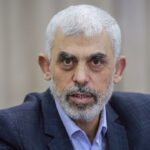Henry Alfred Kissinger (27 May 1923 – 29 November 2023) is an American diplomat, political theorist, geopolitical consultant, and politician who served as United States Secretary of State and National Security Advisor.
Life and Career
Henry Kissinger was born on 27 May 1923, in Furth, Germany. He immigrated to the United States. He studied at Harvard University, where he earned a bachelor’s degree in 1950 and a Ph.D. in government in 1954. Kissinger’s academic achievements and expertise in international relations propelled him into a successful career in academia and public service.
After completing his doctoral studies, Kissinger joined the faculty at Harvard University, where he became a professor of government and international relations. He gained recognition for his writings on international politics and was widely regarded as an expert in the field.
In 1969, President Richard Nixon appointed Kissinger as National Security Advisor. In this role, he played a key part in the secret negotiations with North Vietnam, which eventually led to the Paris Peace Accords and the end of U.S. involvement in the Vietnam War.
His most significant diplomatic achievement came in 1973 when he helped negotiate the ceasefire agreements during the Yom Kippur War between Israel and Egypt. This effort led to his appointment as Secretary of State later that year, making him the first person of Jewish heritage to hold that position.
During his tenure as Secretary of State, he focused on realpolitik, a pragmatic approach to international relations. He engaged in shuttle diplomacy and played a central role in establishing détente with the Soviet Union and opening relations with China. He also worked to promote stability in the Middle East and played a pivotal role in the negotiations that led to the 1975 Paris Peace Accords, which aimed to end the Vietnam War.
Kissinger died from heart failure at his home in Kent, Connecticut, on November 29, 2023, at the age of 100.
Award and Legacy
In 1973, he was awarded the Nobel Peace Prize for his role in the Paris Peace Accords. His legacy remains a subject of debate. Supporters credit him with advancing American interests and maintaining a balance of power during a turbulent era. Critics argue that his policies were morally questionable and point to controversies such as U.S. involvement in Chile during the presidency of Salvador Allende and the human rights abuses that occurred in various countries.
Observer Voice is the one stop site for National, International news, Editor’s Choice, Art/culture contents, Quotes and much more. We also cover historical contents. Historical contents includes World History, Indian History, and what happened today. The website also covers Entertainment across the India and World.










